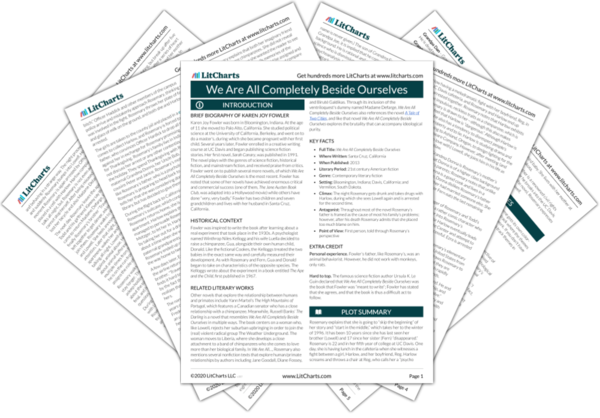The moving final passage of the novel contains a kind of thesis statement on the nature of the animal-human divide. The gap between species is ultimately unbridgeable, and because of this Fern will always be something of a mystery to Rosemary. However, despite this gap it is possible to build a powerful sense of affinity with animals, and to recognize that they are indeed our relations.
